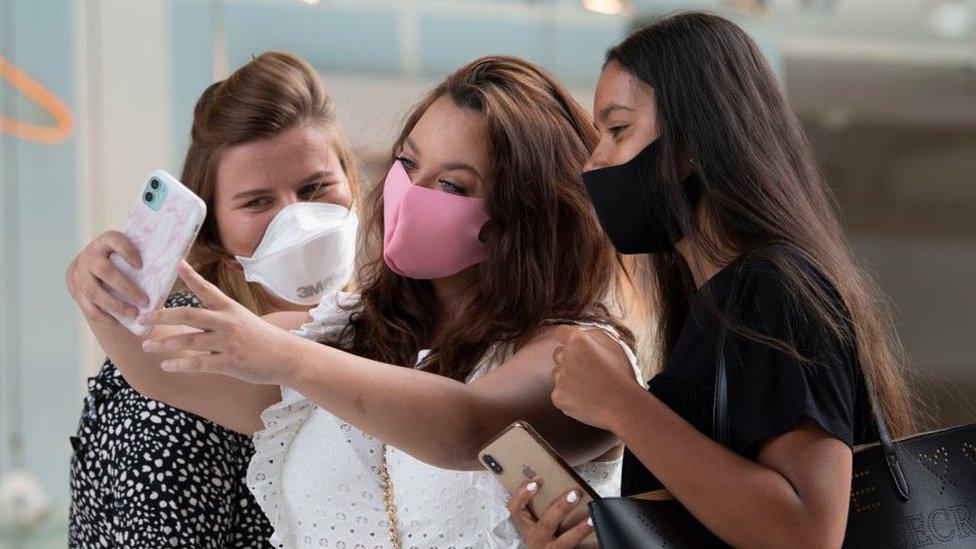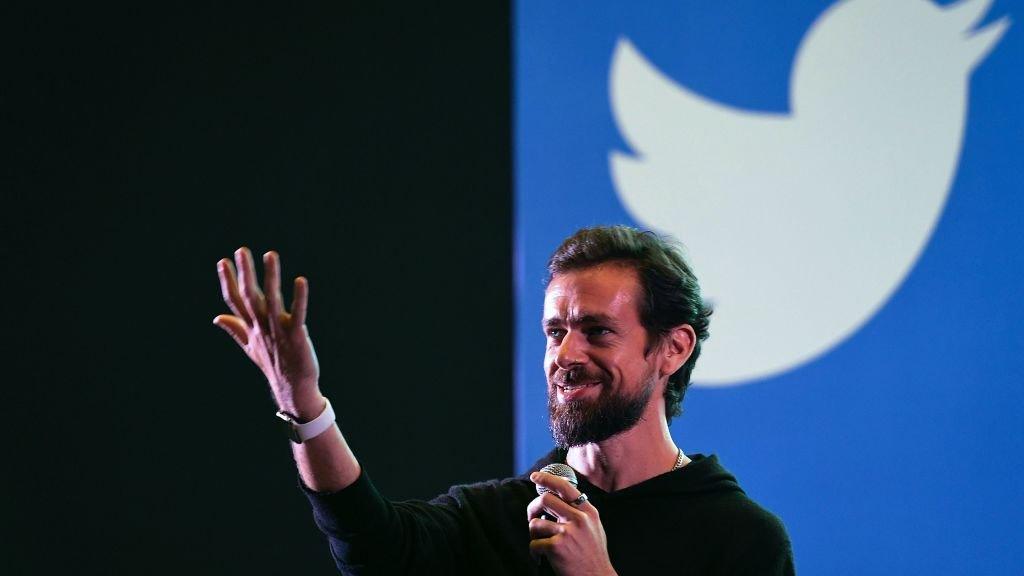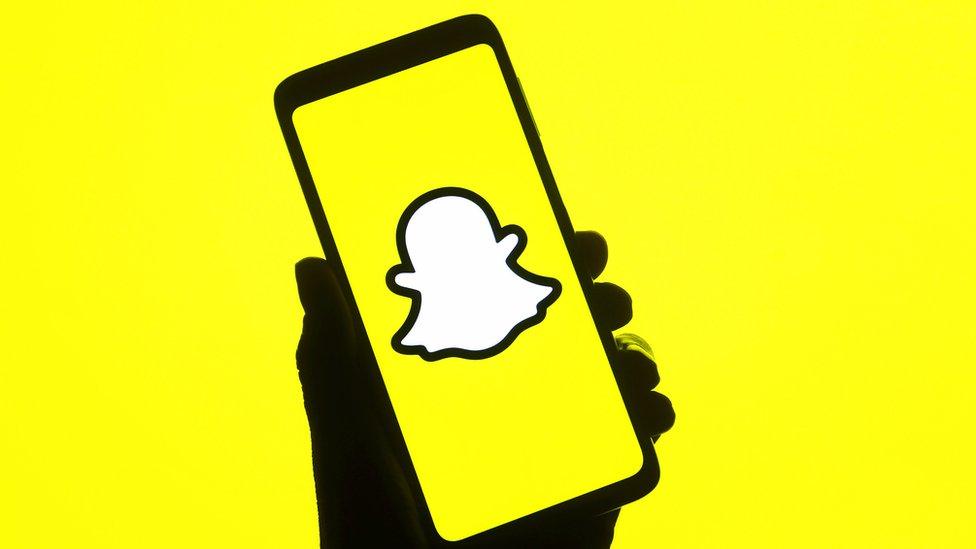Twitter and Snap add users as restrictions ease
- Published

Social media firms Twitter and Snap are continuing to add users even as pandemic restrictions ease.
Snapchat's number of daily users topped 293 million in the three months to the end of June, beating analysts' expectations.
And Twitter reported it passed the 200 million mark for daily active users who view adverts on its platform in the same period, up 11% year-on-year.
Both California-based companies also saw revenues increase.
Snap owns mobile app Snapchat, best-known for its video and photo "stories" that disappear after 24 hours. The firm reported revenues more than doubling to $982m (£713m).
"Our second quarter results reflect the broad-based strength of our business, as we grew both revenue and daily active users at the highest rates we have achieved in the past four years," Snap boss Evan Spiegel said in its financial update, external.
The company was, however, still $152m in the red, down from $326m in net losses for the same period in 2020.
Meanwhile, micro-blogging site Twitter said sales rose 74% year-on-year to $1.19bn, generating a profit of $65.7m for the company.
This is the first time Twitter's advertising revenues have passed the $1bn mark. The firm said it had invested in making advertising campaigns easier to buy into for small and medium-sized businesses.
"As we enter the second half of 2021, we are shipping more, learning faster and hiring remarkable talent," Twitter chief executive Jack Dorsey told investors on Thursday.
The San Francisco-based social network also set out plans for spending on data centres, as well as on new features such as newsletters and a subscription service which allows users to "undo" their posts.
But Twitter warned that its total costs and expenses would rise by at least 30% this year as it plans to increase its workforce too.
Snap has also been experimenting with new features to grow advertising revenues in recent months, such as virtual reality try-on services for clothes or make-up. It has even been trialling augmented reality "Spectacles".
Mr Spiegel said he was "pleased by the progress the team is making" on developing the technologies.
Looming risks
Both companies have been boosted by an increase in online advertising and spending during the pandemic as companies bid for consumers' attention while they were stuck at home during lockdown.
They do, however, face stiff competition from rivals such as Apple and Google.
Google boss Sundar Pichai on tax and his personal tech habits
And new privacy controls that Apple introduced in April, which aimed at limiting advertisers from tracking iPhone users without their knowledge, could hamper growth.
Snap's chief business officer Jeremi Gorman said in a statement that it had already caused "some disruption" to demand.
Twitter suggested it was too early to determine the impact of the new policy.
The firm also faces other challenges, including a lawsuit filed against Twitter, Facebook and Google by former US Donald President, claiming he is a victim of censorship.
The class action lawsuit, filed in conjunction with the America First Policy Institute think-tank, also targets the three companies' bosses.
Mr Trump was suspended from his social accounts in January over public safety concerns in the wake of the Capitol riots, led by his supporters.
According to Twitter, external, the tweets that resulted in Mr Trump's ban for "glorification of violence" were from 8 January, two days after the rioting in the nation's capital. The riot followed his repeated claims, without evidence, that the election was rigged in Joe Biden's favour.
Related topics
- Published10 February 2021

- Published21 June 2021
